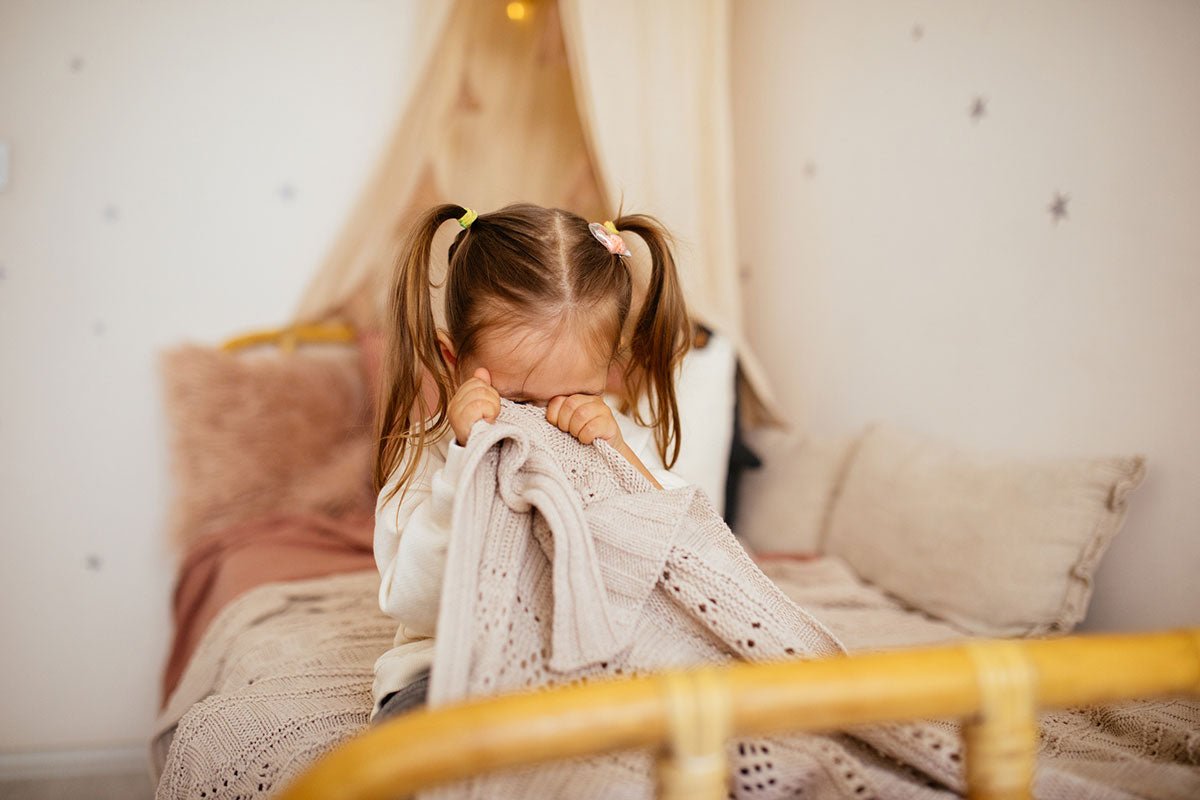Sleep is not only essential for us adults, but also plays an enormously important role in the health and development of our children. But why is sufficient sleep so important for children and what effects does a lack of sleep have on their health? In this blog post, we get to the bottom of these questions.
Why is restful sleep so important?
Sleep is as important to your child's brain as a balanced diet. When children sleep, their brains are very active. During this time, a variety of processes take place that are crucial to your child's growth, development and health. These include learning, storing memories and regulating emotions, among others.
How much sleep does your child need?
The amount of sleep needed varies depending on your child's age. Newborns and infants typically need 16 to 18 hours of sleep per day, while toddlers ages one to three need about 12 to 14 hours of sleep. School-age children should get about nine to twelve hours of sleep per night, while teenagers need between eight to ten hours of sleep.
What effects does lack of sleep have on your child’s health?
Lack of sleep can affect several aspects of your child's health. It can lead to impaired cognitive function, which can negatively affect learning ability and memory. Lack of sleep also increases the risk of mood swings, irritability and behavioral problems. The immune system can also be weakened, making your child more susceptible to illness.
Why do children sleep worse in summer?
Summer brings longer days, which means it's light longer in the evenings. This extra daylight can affect the body's natural signals for sleep. The body produces the hormone melatonin, which regulates the sleep-wake cycle, in response to darkness. When it's light longer in the evenings, it can delay melatonin production and make it harder to fall asleep.
Children who normally go to bed at a set time may find it difficult to fall asleep at their usual time during the summer months. This may result in a reduction in sleep time, as children still have to wake up early to attend to their normal daily obligations.

5 tips for better sleep hygiene
- Regular sleep-wake rhythm: Maintain a set bedtime and wake-up time for your child, even on weekends. A regular sleep-wake rhythm helps prepare the body for sleep and regulate the internal clock.
- Create a relaxing sleep environment: Make sure your child's bedroom is quiet, dark and well ventilated. Use blackout curtains or blinds to keep out daylight. A comfortable room temperature and a comfortable bed also contribute to a relaxing sleep environment.
- Establish a sleep routine: A consistent bedtime routine can help your child prepare for sleep. This can include warm tea with honey, reading a story, or doing kids' yoga. A sleep routine signals to the body that it's time to wind down.
- Choose suitable clothing: Choosing the right sleepwear is particularly important in summer. Light, breathable materials can help prevent children from overheating on warm nights and ensure they have a restful sleep.
- Encourage physical activity: Exercise can help your child to get some exercise and fall asleep better at night. However, avoid intense physical activity shortly before bedtime, as this is more likely to have the opposite effect.
Conclusion
Adequate and restful sleep plays a crucial role in the health and development of our children. During sleep, important processes take place that support growth, cognitive function and emotional regulation. However, a lack of sleep can have significant effects. It can lead to problems with cognitive performance, memory, mood and behavior. In addition, lack of sleep weakens the immune system and increases susceptibility to disease. It can be particularly difficult for children to get enough sleep in the summer, as the additional daylight interferes with the body's natural signals for sleep. Good sleep is essential for the optimal growth, development and daily performance of children.
Sources:





























